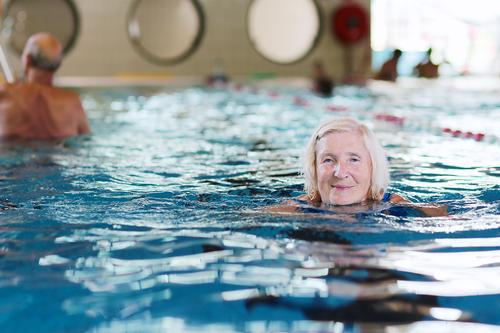see all jobs
Wellness interventions reverse memory loss in Alzheimer’s sufferers: pilot study
Major lifestyle and wellness interventions appear to have reversed memory loss caused by Alzheimer’s disease in a small group of patients for the first time, according to a US study.
The research – conducted by the University of California, Los Angeles (UCLA) and the Buck Institute for Research on Aging – saw a specialist group of experts put together a 36-point individual plan for 10 different patients who have been living with Alzheimer’s.
The specially-tailored plans saw the patients make significant changes to their diets, while also increasing their brain stimulation, obtaining optimal sleep, taking part in more exercise, yoga and meditation, receiving particular medications and also taking specific daily supplements.
The results proved to be remarkable, with nine out of 10 of the patients gaining an improvement within three to six months of starting the lifestyle-change programme. The only patient not to gain any benefit had been diagnosed with late-stage Alzheimer’s.
Such were the benefits for some participants in the study, that six patients who had been struggling at work or who had to stop because of cognitive issues were actually able to return to their jobs, while those who stayed in them showed improved performance.
Despite the stunning results, the researchers behind the study have labelled the outcomes as anecdotal given the small sample size who had taken part in the research. As a result, they have suggested that further studies be conducted to see if the beneficial adjustments are plausible across a wider sample.
“The current, anecdotal results require a larger trial, not only to confirm or refute the results reported here, but also to address key questions raised, such as the degree of improvement that can be achieved routinely, how late in the course of cognitive decline reversal can be effected, whether such an approach may be effective in patients with familial Alzheimer’s disease, and last, how long improvement can be sustained,” said lead expert Dale Bredesen.
Prior to this recent publication, other pieces of research have alluded to the benefit of certain wellness approaches, such as how hatha yoga can help to aid cognitive function in the world’s older population.
Elsewhere, one study has shown that regular workouts also have a positive impact on the brain and can help stave off the development of stress-related depression.
More News
- News by sector (all)
- All news
- Fitness
- Personal trainer
- Sport
- Spa
- Swimming
- Hospitality
- Entertainment & Gaming
- Commercial Leisure
- Property
- Architecture
- Design
- Tourism
- Travel
- Attractions
- Theme & Water Parks
- Arts & Culture
- Heritage & Museums
- Parks & Countryside
- Sales & Marketing
- Public Sector
- Training
- People
- Executive
- Apprenticeships
- Suppliers
















































